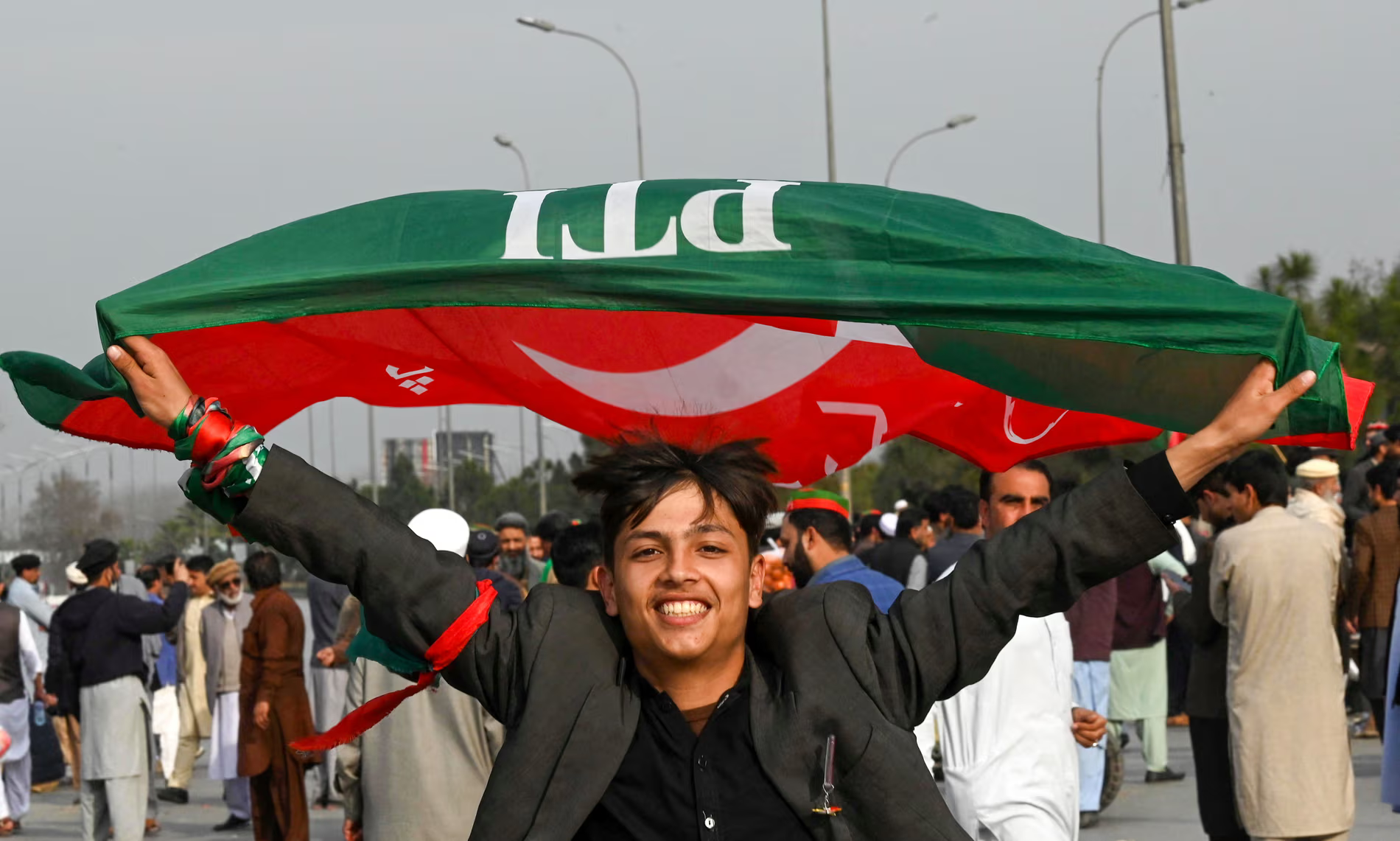We need your support to keep the secularist going

Since the founding of Pakistan in 1947, not a single prime minister has served the full five-year term. If this fact betokens a country marked by instability and sudden changes in the political mood then last week’s remarkable elections have done little to change that reputation. The electoral analysts were proved wrong, as candidates loyal to the imprisoned former prime minister, Imran Khan, stunned outside observers – and even the country’s political elite – by winning the most seats. One thing can now be predicted with confidence: a new period of political turmoil.
Nearly 60 million people turned out to vote on 8 February. On polling day, the government imposed a mobile services and internet blackout across the country, citing threats of terrorism and social unrest. The move severely restricted journalists’ and voters’ ability to monitor polling stations and provide real-time updates. Voters also criticised the slow counting of votes by the Election Commission of Pakistan, raising suspicion of irregularities. As the final results were announced on Sunday, protests were already under way across Pakistan as candidates loyal to Khan alleged serious vote-rigging.
Nonetheless, the independent candidates loyal to Khan’s Pakistan Tehreek-e-Insaf (PTI) party picked up 97 seats, falling far short of the 134 needed for a simple majority, but beating their more established competitors. PTI candidates were forced to run as independents after Pakistan’s supreme court upheld a decision to stop PTI using the cricket bat as its election symbol. In a country with a 42% illiteracy rate, which is worse in rural areas, the decision was a major blow for PTI, since voters rely on such symbols to identify their favourite candidate on the ballot paper.
Before election day, many analysts believed that the former three-time prime minister, Nawaz Sharif, would probably emerge as victor because his Pakistan Muslim League-Nawaz (PML-N) party was set to benefit from PTI’s troubles. After returning to Pakistan in October last year from self-imposed exile in London, Sharif is also viewed by commentators to be the preferred candidate of the security establishment – Pakistan’s powerful army, which dominates the country’s domestic politics and dictates foreign relations. Yet PML-N has secured only 75 seats. The other long-term political party, Pakistan People’s Party (PPP), managed to win 54 seats. The PPP is headed by Bilawal Bhutto Zardari, the Oxford-educated son of the assassinated former female prime minister, Benazir Bhutto. He was briefly Pakistan’s foreign minister in the coalition government that came to power after Khan’s removal from office by a parliamentary vote of no confidence in April 2022.
PML-N and PPP have dominated the political scene for decades. However, they are both led by political dynasties. Khan’s staunch opposition to such dynastic, family politics resonates closely with urban and young Pakistanis who are deeply dismayed about the state of their country, which they blame on the rampant corruption and incompetence of the ruling elite.
Despite the unexpected success of Khan’s loyalists in the election, they are facing an uphill battle. In theory, independent candidates can unite to form a majority or coalition government, but there is no such precedent in Pakistan, where political parties dominate the national assembly. The scene is set for uncertainty as PML-N, PPP and other parties will jostle to form what will be – at best – an unsteady coalition government with the shadow of a hung parliament looming over the country’s political landscape.
Regardless of who leads the next government, Pakistan faces numerous crises. Its frail economy is on the verge of collapse. The new government will be pressed to prepare plans to enter a new International Monetary Fund programme, after Pakistan received a bailout of $3bn last year that prevented a sovereign debt default. Inflation hit nearly 30% in December and is expected to remain above 20% in 2024. Some 95 million Pakistanis live in poverty. The Pakistani rupee has been ranked the worst-performing currency in Asia after losing 20% of its value against the US dollar in 2023 alone.
Despite the serious economic strains facing the country, Pakistan maintains key advantages that the new government must seize. Connecting China and India with central Asia through Afghanistan, it is strategically located for global security and regional trade. As a nuclear power with a legacy of industry and other sectors, Pakistan is key to the economic prosperity of south Asia, a region where 25% of the world’s population lives. Crucially, Pakistan is a young country: about 65% of the population is under the age of 30. This is also reflected in the electorate: 44% of voters are aged between 18 and 35.
However, for far too long, the country’s ruling and political elites have failed to capitalise on the human ingenuity and aspirations of the population. In recent decades, the military and civilian leadership have operated in a parallel world, disconnected from the realities facing ordinary Pakistanis, whose demands and sense of security have been disregarded. If these problems aren’t addressed immediately, large segments of Pakistan’s society will feel further alienated and disfranchised. This would foreclose any possibility of recovery in the coming years. The next government – unhindered by the security establishment – must pursue a path for national reconciliation to rally the whole of society. Otherwise, these elections will inevitably be seen as yet another moment of Pakistani politics failing its own people


Hameed Hakimi
Hameed Hakimi is an associate fellow at Chatham House and a senior fellow at the Atlantic Council

